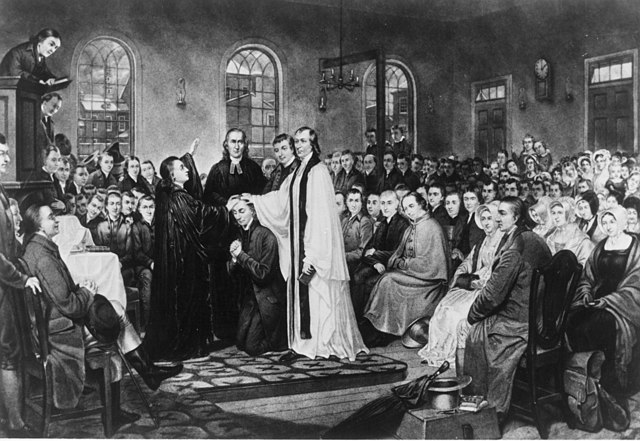Ecclesiastical polity is the government of a church. There are local (congregational) forms of organization as well as denominational. A church's polity may describe its ministerial offices or an authority structure between churches. Polity relates closely to ecclesiology, the theological study of the church.
The apostles Peter and John laying hands in ordination. Illustration, 1873.
An Anglican deacon, bishop and priest. Priests are usually former deacons in episcopal polity.
The ordination of Methodist Bishop Francis Asbury, 1784.
Cathedral churches like St. Andrews were incompatible with the presbyterian polity taught by John Knox. This statue stands in St. Giles, still called a cathedral despite no longer serving as an episcopal seat.
A church is a religious organization or congregation that meets in a particular location. Many are formally organized, with constitutions and by-laws, maintain offices, are served by clergy or lay leaders, and, in nations where this is permissible, often seek non-profit corporate status.
Congregants worship in a Dutch Restored Reformed church, Doornspijk
A village church in South Sudan
The door of this Spanish church is inscribed ES YGLESIA DE REFUGIO ("[This] is an asylum church").







![The door of this Spanish church is inscribed ES YGLESIA DE REFUGIO ("[This] is an asylum church").](https://upload.wikimedia.org/wikipedia/commons/thumb/a/ab/Porta_lateral_da_igrexa_de_Santa_Mar%C3%ADa_da_Balsa.jpg/450px-Porta_lateral_da_igrexa_de_Santa_Mar%C3%ADa_da_Balsa.jpg)